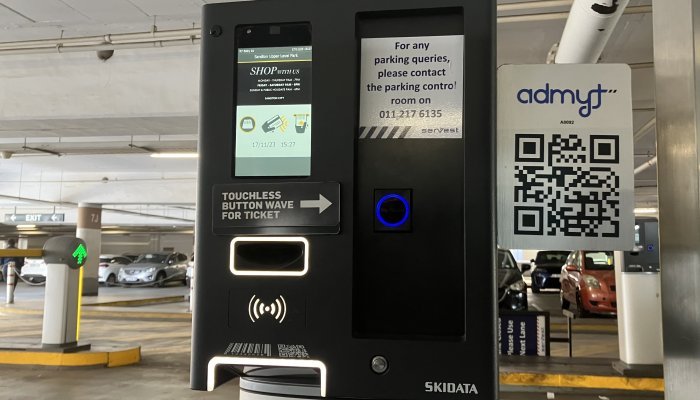Property technology, or proptech – the use of information technology and platforms in real estate transactions – has existed for years, with the US and European markets experiencing a surge in investments in this space.
New technologies to leverage smart devices, digital energy management solutions, and those that harvest data analytics around building functionality, from integrated hardware performance to user experiences, continue to emerge.
In South Africa and the rest of the African continent, similar technologies were developed to the benefit of property owners and end users. This is according to Peter Clark, cofounder and managing partner of REdimension Capital – a venture capital company that aims to accelerate innovation in the built environment.
“Lack of funding, limited climate change pressure and a lack of centralised technology strategies have meant that the adoption of new technologies has been slow,” says Clark.
Since about 2021, small and large real estate companies have been increasingly embracing technology with a greater willingness to invest in and adopt new and innovative technologies. “Real estate companies have started to realise how technology can be a positive enabler for their business.”
Clark says smaller companies tend to be more agile and can manage changes in the proptech space much more efficiently. For many real estate companies, budgets are limited, hence enterprise technologies tend to focus efforts on larger clients, meaning smaller portfolios may not have full visibility on the product market.
“From our experience, technology companies tend to price their products such that there can be a clear value proposition notwithstanding the size of a particular portfolio.”
Innovation
Clark points out the biggest differentiator between small and large companies, regardless of size, is the internal culture of innovation, which drives the willingness to engage and adopt new technologies.
A good example of internal innovation is unlisted property company Inospace, which developed Pulse – an internal leasing software – in 2020 to manage the leasing of its portfolio.
The integrated platform generated about 92% of sales leads enabling the company to scale fast. Inospace sold Pulse to Lisa, a Dutch-based proptech software that facilitates and improves processes such as leasing, sales and real estate management.
Lisa manages the leasing of Inospace’s 53 properties – home to more than 1 500 tenants in Cape Town and Johannesburg. It helps landlords to understand which buildings and expiring leases have the highest demand or are the highest revenue risk.
CEO Rael Levitt says within their portfolio, demand and occupancies were high, but the company lacked accurate data on what occupiers were prepared to pay given limited market supply.
“Our platform showed us that industrial property tenants were prepared to pay up to R90/m2 for most spaces and, although we were fully occupied, we were underpriced,” he says.
With automated marketing and lead-to-lease technology, brokers and asset managers have instant access to premium content, including videos and accurate floor plans. It now takes seven days, rather than 32, to convert an onsite viewing to an executed lease.
Benefits
Kura Chihota, a regional property consultant and commercial property broker at eXp Realty, says instead of using Excel spreadsheets to generate reports a week or month later, technology has expedited this process with up-to-date data.
“Automated dashboards offer users real time data that occupiers and property brokers need to make informed decisions.”
Chihota says with the skills shortage, proptech is a useful tool for maintaining operations thanks to automation while remote access security, for example, results in reduced costs.
For leading listed property companies such as Growthpoint Properties and Dipula Income Fund, technology is no longer a nice-to-have but a must-have.
Since 2017, Dipula has been using Gmaven, a proptech platform, to manage its current and upcoming property vacancies across its portfolio.
Previously, vacancy information was extracted from MDA, a property management system. It was not user-friendly and required Excel spreadsheets in addition to MDA for tracking vacancy information and lease deals.
Creating one version of data by managing all information through Gmaven has eliminated conflicting information and reduced time and costs to collect and manage vacancies and leasing transactions.
“Gmaven accurately manages vacancy information and facilitates leasing transactions,” explains CEO Izak Petersen.
Recently, Gmaven launched a mobile application that enables brokers and leasing managers to access information when onsite or meeting with clients.
Gmaven is paid for on a user basis, and Dipula invested capital upfront to install smart meters and pay installation costs and licensing fees for its document management system.
Operational efficiencies
Estienne de Klerk, SA CEO of Growthpoint Properties, says the group consistently enhances operational efficiencies using technology and automation to manage its portfolio.
This includes the recently implemented state-of-the-art enterprise management system that enhances automated workflow, smart electricity metering and data analytics to understand shopper behaviours at its shopping malls.
“These processes help our tenants and business to understand and reduce power consumption – but importantly – drive operational efficiencies resulting in reduced costs,” says De Klerk.
In addition to Gmaven, Dipula uses DocuWare – a cloud-based document and workflow software. It has reduced the company’s reliance on paper, thus reducing costs and environmental footprint. Easy access to file storage enables remote working for teams.
“We have seen increased efficiencies and productivity with minimised errors due to digitisation and automation of workflow processes in the finance, operations, procurement and utilities department,” says Petersen.
Dipula installed electronic and remote metering solutions to get real-time information from its buildings to manage and track electricity, water, gas and even solar power usage efficiently.
Payment solutions
Proptech software such as PayProp, which is integrated into the banking system, streamlines and automates residential rental payment processes for property practitioners.
Rental payments matched to the right tenant and property are automated. Agents’ commission is calculated and payments to landlords and contractors are paid timeously.
“The automation of numerous financial tasks saves agents time and reduces the risk of errors,” says Michelle Dickens, CEO of PayProp SA.
PayProp, which launched in 2004 in South Africa, serves a diverse customer base of residential rental professionals. It processes about R57 billion in rental payments annually in South Africa, the UK and Canada.
Dickens says the PayProp software creates efficiency, leading to reduced costs and time spent, and increasing accountability and transparency because of real-time data. “It also provides analytics into market trends and tenant behaviour enabling property professionals to make informed decisions about their rental portfolios.”
Parking made easy
In 2016, Admyt, a technology-driven parking management platform, was launched. It seamlessly integrates license plate recognition software and smartphone technology to deliver cashless, ticketless and contactless parking solutions.
When users approach an Admyt site, the entrance or exit boom opens automatically through license plate recognition, thus providing a seamless user experience and improving traffic flow.
The platform, with operations in more than 55 sites, has more than 120 000 users and 220 000 registered vehicles. It provides accurate revenue collection, minimising the common issue of revenue leakage in traditional ticket-based parking systems.
“As demand for tech solutions, cost efficiencies and superior customer experiences continues to grow at landlord level, we anticipate even faster adoption and growth in the future,” says Kfir Rusin, joint CEO of Admyt.
Landlords turn to Admyt to enhance cost management and operational efficiency associated with pricey manual ticketing systems, and high maintenance costs associated with traditional set-ups.
Rusin says the total cost of setting up and operating an Admyt-enabled site is significantly lower than that of traditional parking management systems and equipment. “Where we integrate Admyt with existing systems at large regional malls, for example, we can substantially reduce the cost per parker as the number of entries via our system increases.”
Risk underwriting
Riyaad Khan, co-head of real estate investment banking at RMB, says proptech’s valuable data solutions can be instrumental in enhancing analytics for risk underwriting, product development and improving customer experiences.
“Integrating proptech solutions aligns with our strategy of staying at the forefront of innovation in the financial services sector,” says Khan.
RMB is one of the founding investors into SA’s first dedicated proptech investment fund, the REdimension Real Estate Technology and Sustainability Fund 1, which achieved more than R200 million in total commitments when it first closed in July.
KEY TAKEAWAY
The role of proptech
Matthew Marshall, REdimension’s co-founder and partner, says there is significant opportunity for technology to play a role in enhancing asset performance.
This could be through enhanced user experiences that drive tenant retention and higher rents, or better understanding of consumption and how to minimise inefficiencies at an asset or organisational level.
“We believe initial adopters of technology will be well positioned to outperform within a challenging and changing real estate environment,” says Marshall.
Technology will continue to evolve and companies that invest in and adopt new technologies will stay ahead of the game. Marshall provides five key roles of proptech in a dynamic and changing real estate sector.
- Access to capital.
As a capital-intensive asset class and typically inaccessible to most, proptech has the ability to open up new avenues for real estate investment and drive increased liquidity, a broader investor base, and ultimately should drive higher values. - Data-driven decision-making.
Technology produces significant amounts of data such as market trends and investment opportunities which can assist management teams make informed decisions to mitigate risks and capitalise on new opportunities. - Enhanced operational efficiency and transparency.
By leveraging technology, investors, managers, and service providers can drive efficiencies in their investment and operating processes. - Improved tenant and user experience.
Technology enables property owners and managers to understand and interact better, resulting in increased user experience, and can drive higher tenant satisfaction and retention. - Sustainability and energy efficiency.
With the real estate sector accounting for 39% of global carbon emissions, proptech solutions including building management systems and energy monitoring tools are essential to promoting sustainability and energy efficiencies. Building management systems help optimise consumption and reduce operational costs.












